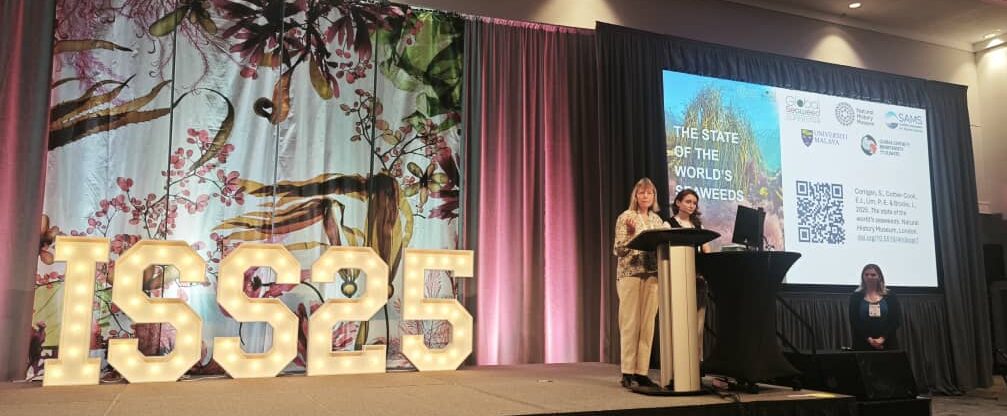
17 June 2025
post
People, Nature, and Resilience: Launching ILWGAWS in Ghana’s Coastal Wetlands
17 June 2025
post
People, Nature, and Resilience: Launching ILWGAWS in Ghana’s Coastal Wetlands
29 May 2025
post
Potatoes, People, and Photobooks: The International Potato Center’s (CIP) Climate Response in the Andes
16 May 2025
post
GlobalSeaweed SUPERSTAR: New Landmark Report Outlines Threat to Global Seaweeds
16 April 2025
post
EMBRACE: Reviving Forgotten Food Crops, Securing the Future
16 April 2025
post
Building Adaptive Fisheries Governance Capacity: Can adaptive governance improve fisheries management?
05 March 2025
post
Blog: Balancing conservation and livelihoods – exploring local perspectives within the Indonesian seaweed industry
12 February 2025
event
The GCBC 2025 Research Symposium Open Day
04 February 2025
post
The GCBC Research Grant Competition 3 (RGC3) Concept Note application has CLOSED
14 January 2025
post
Research Grant Competition 2 (RGC2): The GCBC awards £13.4 million in UK ODA grants for research to find nature-based solutions to climate change and poverty reduction
14 January 2025
project
Biodiversity for climate and social resilience: Empowerment of coastal communities in sustainable production practices in Ecuador